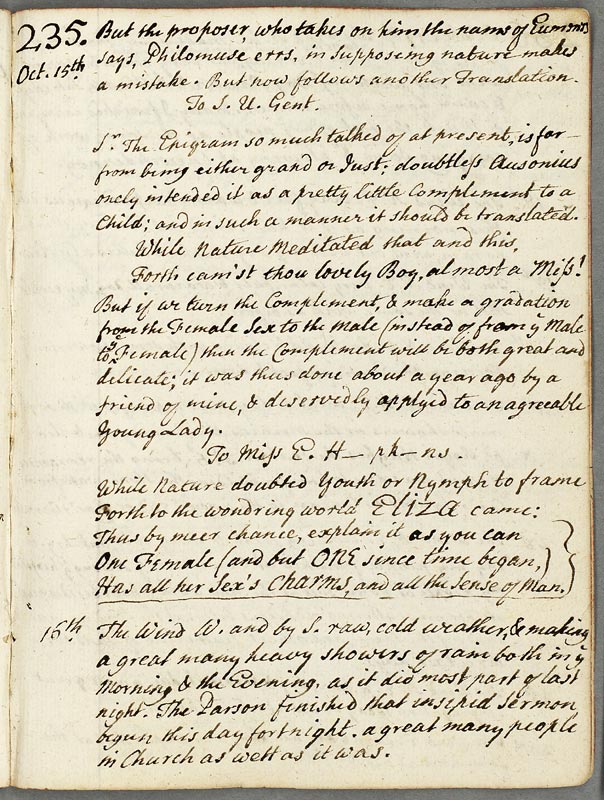
But the proposer, who takes on him the name of Eumenes, says , Philomuse errs, in Supposeing nature makes a mistake. But now follows another Translation. To S. U. Gent. Sr. The Epigram so much talked of at present, is far – from being either grand or Just; doubtless Ausonius onely intended it as a pretty little Compliment to a Child; and in such a manner it should be translated. While Nature Mediated that and this, Forth cam’st thou lovely Boy, almost a Miss! But if we turn the Compliment, & make a gradation from the Female Sex to the Male (instead of from ye Male to <ye> Female) then the Compliment will be both great and delicate; it was thus done about a year ago by a friend of mine, & deservedly applyed to an agreeable Young Lady. To Miss E. H–pk–ns . While Nature doubted Youth or Nymph to frame Forth to the wondering world Eliza came: Thus by meer chance, explain it as you can One female (and but One since time began,) Has all her Sex's Charms, and all the Sense of Man. [there is a curly bracket joining the ends of the last three lines of this verse in both WB and the GM sw] 16th. The Wind W. and by S. raw, cold weather, & making a great many heavy showers of rain both in ye Morning & the Evening, as it did most part of last night. The Parson finished that insipid Sermon, begun this day fortnight. a great many people in Church as wett as it was. |